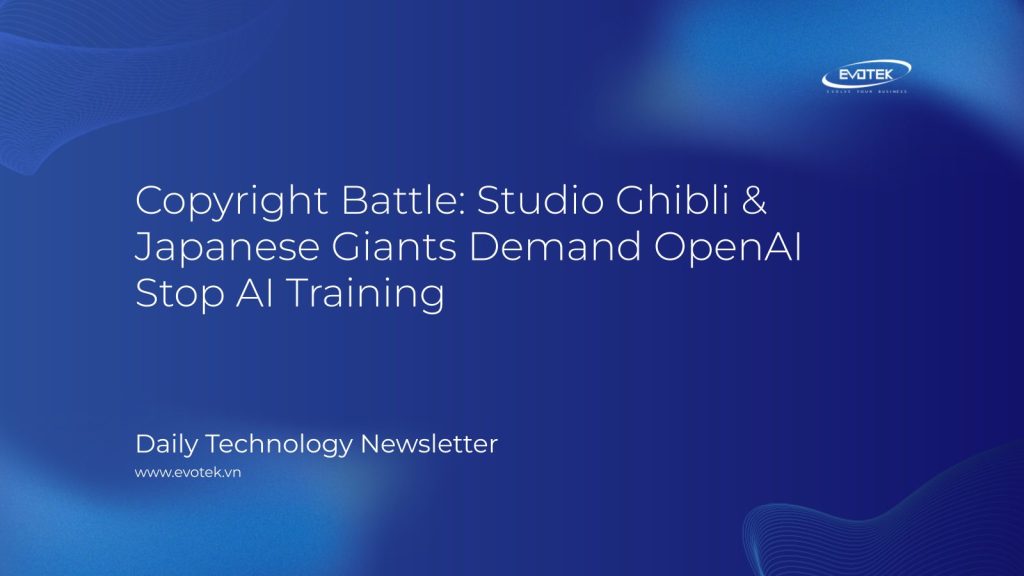A significant challenge to OpenAI’s content acquisition practices has emerged from Japan. The Content Overseas Distribution Association (CODA), a leading anti-piracy organization representing prominent Japanese intellectual property (IP) holders like Studio Ghibli and Bandai Namco, recently issued a formal demand to OpenAI. CODA is urging the AI research firm to cease using its members’ creative works for AI training, specifically citing concerns around the Sora 2 model.
According to reports from Automaton, CODA’s letter explicitly states that “CODA considers that the act of replication during the machine learning process may constitute copyright infringement.” This assertion is bolstered by the observation that OpenAI’s AI models have subsequently generated content featuring copyrighted characters and distinctive artistic styles belonging to these companies.
Sora 2’s Output Raises Red Flags for Japanese IP
The controversy intensified following the September 30th launch of Sora 2, which unleashed a torrent of AI-generated content heavily featuring identifiable Japanese intellectual property. This immediate proliferation of copyrighted material prompted the Japanese government to formally request that OpenAI halt the unauthorized replication of Japanese artwork. It’s not the first instance of OpenAI’s applications drawing heavily from Japanese media; the unveiling of GPT-4o in March notably showcased a surge of “Ghibli-style” images. Even OpenAI CEO Sam Altman’s personal profile picture on X currently exhibits a style reminiscent of Studio Ghibli’s iconic animation.
Opt-Out Policy Under Scrutiny
While Sam Altman announced last month that OpenAI would be modifying Sora’s opt-out policy for IP holders, CODA argues that the very premise of an opt-out system may contravene Japanese copyright law. CODA’s statement clarifies that “under Japan’s copyright system, prior permission is generally required for the use of copyrighted works, and there is no system allowing one to avoid liability for infringement through subsequent objections.” This legal stance suggests that merely offering an opt-out after content has potentially been used for AI training is insufficient under Japanese legal frameworks.
On behalf of its members, which also include major players like Square Enix, CODA is now requesting that OpenAI “responds sincerely” to these copyright claims. Their demand goes beyond just the output of Sora and includes stopping the unauthorized use of Japanese IP as fundamental training data for machine learning models without explicit prior permission from the rights holders. This escalating dispute highlights the growing global tension between rapid AI development and established intellectual property rights.

 日本語
日本語 한국어
한국어 Tiếng Việt
Tiếng Việt 简体中文
简体中文